
Sign in to your ScreenRant account
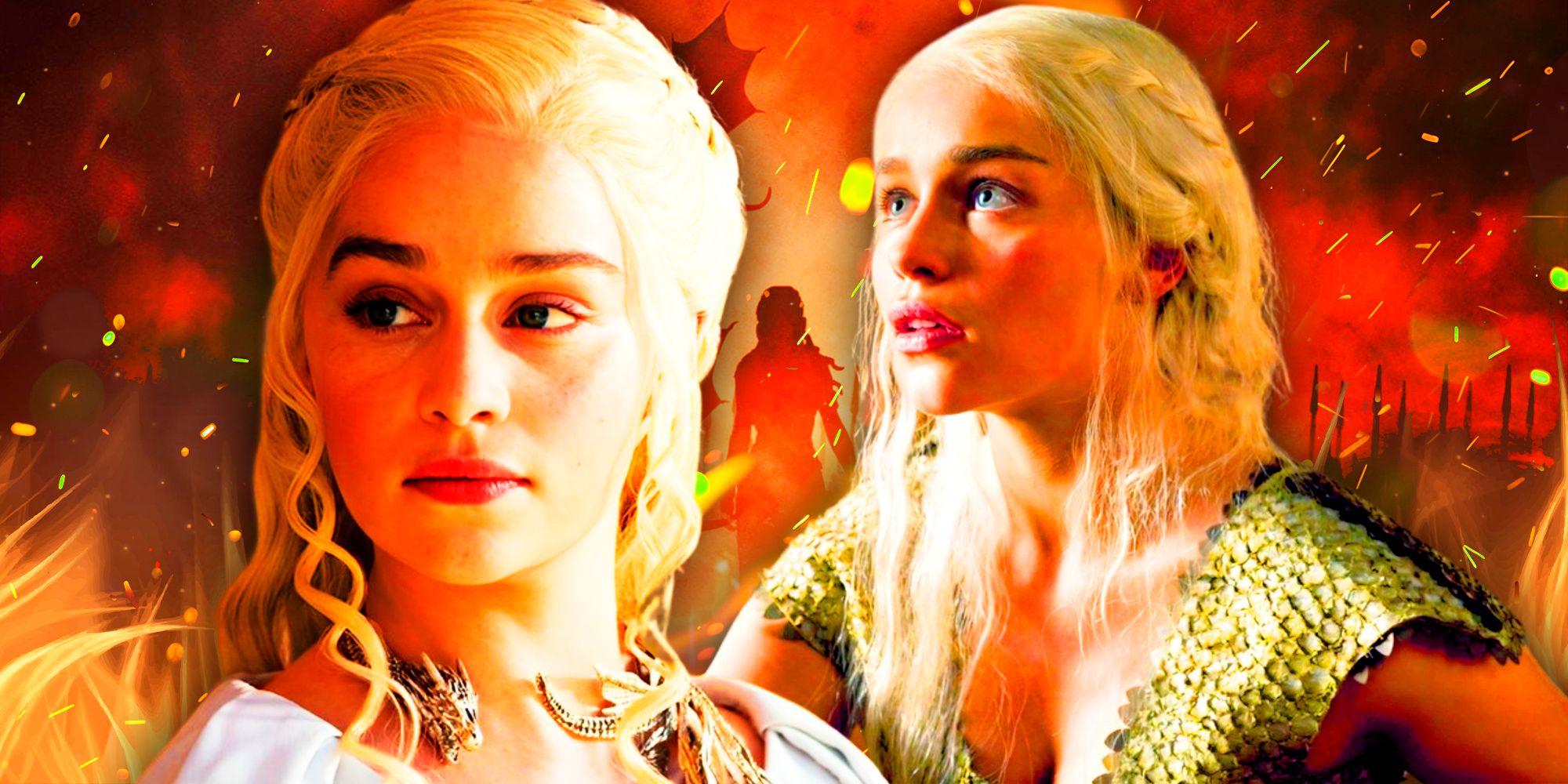 Custom image by Ana Nieves
Custom image by Ana Nieves
Daenerys Targaryen has an absurd number of titles in Game of Thrones, and they all have a specific meaning pertaining to her story. Everyone who's seen the HBO fantasy drama will remember the iconic scene where Daenerys is introduced to Jon Snow in season 7, and Missandei presents the Targaryen queen with nine different titles, only for Davos to humble Jon with "This is Jon Snow; he's King in the North." These titles all pertain to crucial elements of lore from the show and George R.R. Martin's A Song of Ice & Fire book series.
Daenerys' rise to power is one of the most crucial narratives in the TV series, which made her descent into madness all the more harrowing in Game of Thrones' ending. Love or hate the context of her going mad in "The Bells," her decisions align with the story Martin crafted, examining rulers and how they treat their enemies. Dany begins with an astute sense of morality, but she's inflated with titles and glory that alter her perception of the world, leading her toward devastation in season 8.
9 Daenerys Stormborn
"Stormborn" Was Given To Daenerys At Birth
Dany's first title is "Stormborn," which is the only one that doesn't pertain to her actions in the show. Aside from just sounding cool, the name is associated with her birth on Dragonstone. At the end of Robert's Rebellion, 14 years before the events of Game of Thrones begin, Daenerys was born during a great storm. This could refer to a number of things relating to her character or to the Prince That Was Promised prophecy.
The implication of "Stormborn" could be to denote her resilience. She was born during violently hard times, meaning toughness and resolve are bound to become part of her character, making her the ideal ruler over her brother. It could also be to suggest that the storm stirred up salt in the air, combining with Dragonstone's volcanic nature to make Daenerys "Born amidst salt and smoke," relating to the prophecy. In the more literal sense, it just means she was born during a storm, but Martin's writing often prompts the reader to decipher figurative value.
8 Princess of Dragonstone
The Targaryen Title For The Heir Apparent
"Princess of Dragonstone" is a title that pertains to Daenerys' Targaryen ancestry, relating to the history of House Targaryen. In real life, the British monarchy assigns "Prince/Princess of Wales" to the heir apparent to the throne. In the Game of Thrones universe, the Targaryen heir is titled "Prince/Princess of Dragonstone." In the spinoff show House of the Dragon, Rhaenyra Targaryen holds the title Princess of Dragonstone as well after King Viserys I Targaryen names her the heir to the Iron Throne.
Keeping with Targaryen tradition importantly imposes the political idea that she isn't a rebel, and that the sitting rulers are.
It's a bit more confusing in Game of Thrones, though. Even though the Targaryens have been usurped, Daenerys would technically be the last remaining Targaryen heir, following her brother Viserys's death, granting her this title. Seeing as she usually refers to herself as the "rightful" heir, Dany's titles typically ignore the current Baratheon/Lannister monarch. Keeping with Targaryen tradition importantly imposes the political idea that she isn't a rebel, and that the sitting rulers are.
7 Queen of Meereen
Daenerys Conquered Meereen In Slaver's Bay
Daenerys is referred to as the "Queen of Meereen," which is one of the most straightforward titles in her arsenal, referring to her rulership in Meereen. Dany's arc in Meereen takes up her chapters in the book A Dance with Dragons, and while the arc may be frustrating to some who hope to see her sail directly to Westeros, it's crucial in establishing her as a leader. At the start of the series, she may have a Targaryen name, but she hasn't been trained to be a monarch or ruler in any capacity.
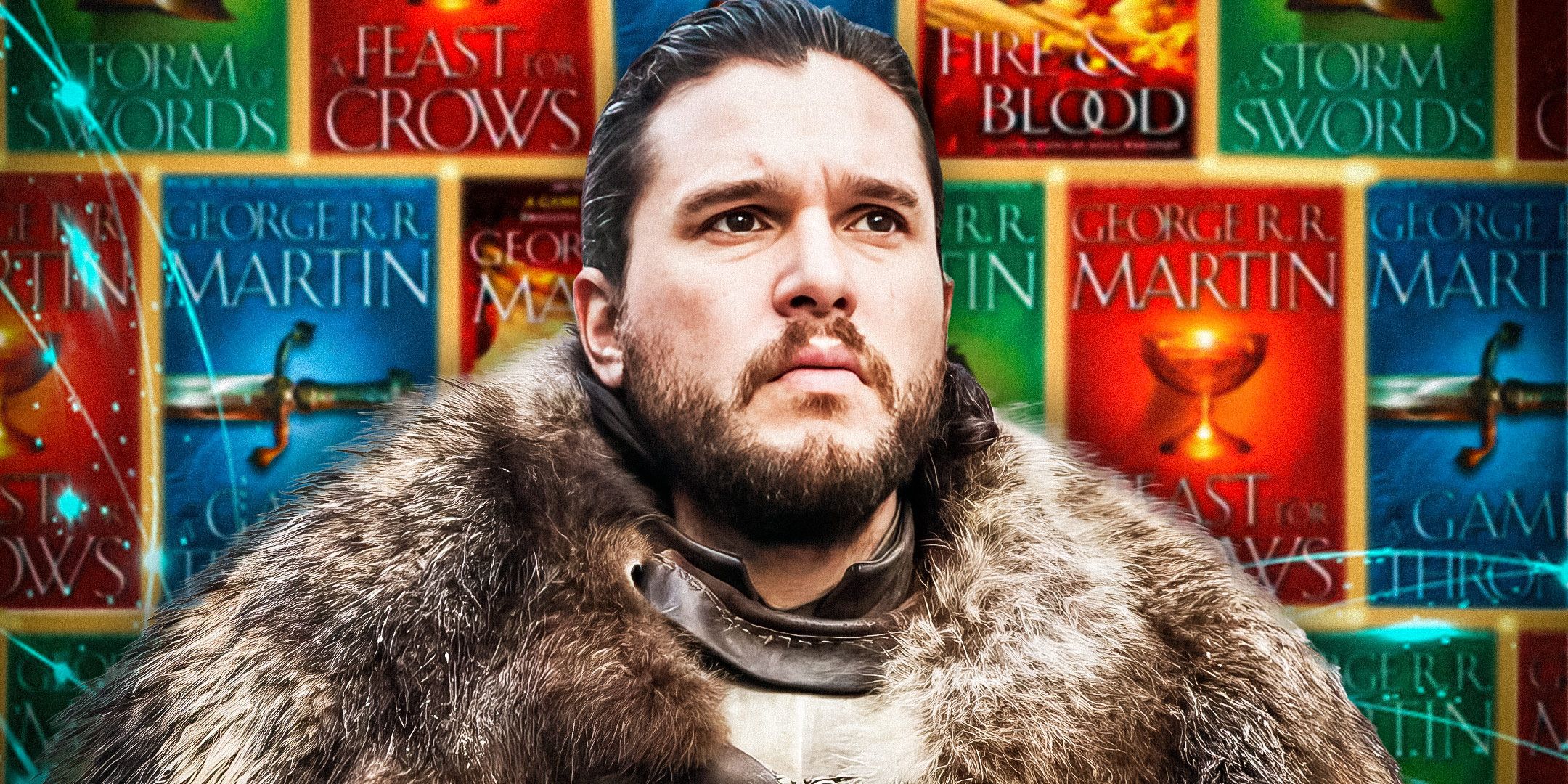
Related
R+L=J: George R.R. Martin's Original Game Of Thrones Plan Makes Jon Snow's Parentage Twist More Impressive
Game of Thrones’ Jon Snow twist dates all the way back to George R.R. Martin’s original ASOIAF outline, and that makes it even more impressive.
The title denotes that Dany isn't just a namesake for a forgotten dynasty but an accomplished ruler in her own right. She took control of Slaver's Bay, breaking centuries of tradition by freeing slaves and eliminating the corrupt leadership in the area. While her progress may have been reversed after she left the region, it still demonstrates that Daenerys Targaryen is capable of protecting her people from oppressive forces.
6 Mother of Dragons
Daenerys Has The First Dragons In Over A Century
The other of Dany's titles that's fairly self-explanatory is "Mother of Dragons." While she may not have directly given birth to her dragons, Drogon, Rhaegal, and Viserion, the nature of their birth is essentially a miracle that involves vague blood magic relating to her unborn child. Daenerys' child with Khal Drogo, Rhaego, was stillborn and deformed, according to Mirri Maz Duur, who killed the baby in response to the khalasar destroying her temple and people.
In response, Dany burns Mirri, herself, and Drogo's body, along with the dragon eggs, with death giving way to new life. The exact properties of this magical ritual are unknown, but Dany's choice leads to the birth of her dragons. In the place of her actual son, along with Mirri's claim that she'd never be able to have an actual human child, Daenerys takes her dragons to be her children. Therefore, the title has a figurative and literal meaning.
5 Khaleesi of the Great Grass Sea
Daenerys Wins Over The Dothraki Khalasars
Daenerys' relationship with the Dothraki is tumultuous throughout Game of Thrones. She earns their respect as the khaleesi to Khal Drogo, but the majority of his khalasar abandons her when Drogo enters a catatonic state in season 1. They divide into khalasars of Khal Pono and Khal Jhaqo, leaving her behind, where she forms her own small khalasar with the remaining Dothraki. Many of them are killed off in early Game of Thrones seasons, but they remain alive and by her side in the books.
In Game of Thrones season 5 finale, Daenerys is found in Essos by Khal Moro's khalasar, whom she earns the favor of in season 6. Daenerys has Moro killed along with several other khals, and she replaces them with Qhono, who becomes their representation. However, in the final seasons of Game of Thrones, Dany goes by "Khaleesi of the Great Grass Sea," representing the idea that she is the official leader of the remaining Dothraki.
4 The Unburnt
Daenerys Can't Be Harmed By Fire In Game Of Thrones
"The Unburnt" is another title that pertains to Daenerys birthing dragons in a flaming pyre in the Game of Thrones season 1 finale. To clarify, since it's often a misconception for TV audiences, Targaryens are not fireproof, nor is Daenerys fireproof in the books. The scene of her stepping into hot water is original to the show, and Daenerys has her hair burnt off in the pyre at the end of A Game of Thrones. In a web chat on EventHorizon.com back in 1999, Martin had this to say on the matter:
Granny: Do Targaryens become immune to fire once they "bond" to their dragons?
George_RR_Martin: Granny, thanks for asking that. It gives me a chance to clear up a common misconception. TARGARYENS ARE NOT IMMUNE TO FIRE! The birth of Dany's dragons was unique , magical, wonderous, a miracle. She is called The Unburnt because she walked into the flames and lived. But her brother sure as hell wasn't immune to that molten gold.
Revanshe: So she won't be able to do it again?
George_RR_Martin: Probably not.
Funnily enough, Daenerys does do it again in season 6, when she uses a burning pyre to win the Dothraki khalasar over to her side. The show's version of Dany seems to have more mystical properties that the book variant lacks, providing her with an additional title that's original to the TV series. The title builds on her mystique as a larger-than-life figure in the world, as magic is fairly absent during the time of Game of Thrones.
3 Breaker of Chains
Daenerys Freed Slaves In Slaver's Bay
The title refers to Daenerys' time in Slaver's Bay, as she begins her mission to free the region's slaves in Astapor. There, she thwarts the masters and obtains the loyalty of the Unsullied. In Yunkai in the TV series, she wins over the sellsword group, the Second Sons. In Meereen, she defeats the masters and establishes her reign from season 4 through season 6. Daenerys took pride in freeing slaves and winning them over to her side, granting her recognition as the "Breaker of Chains."
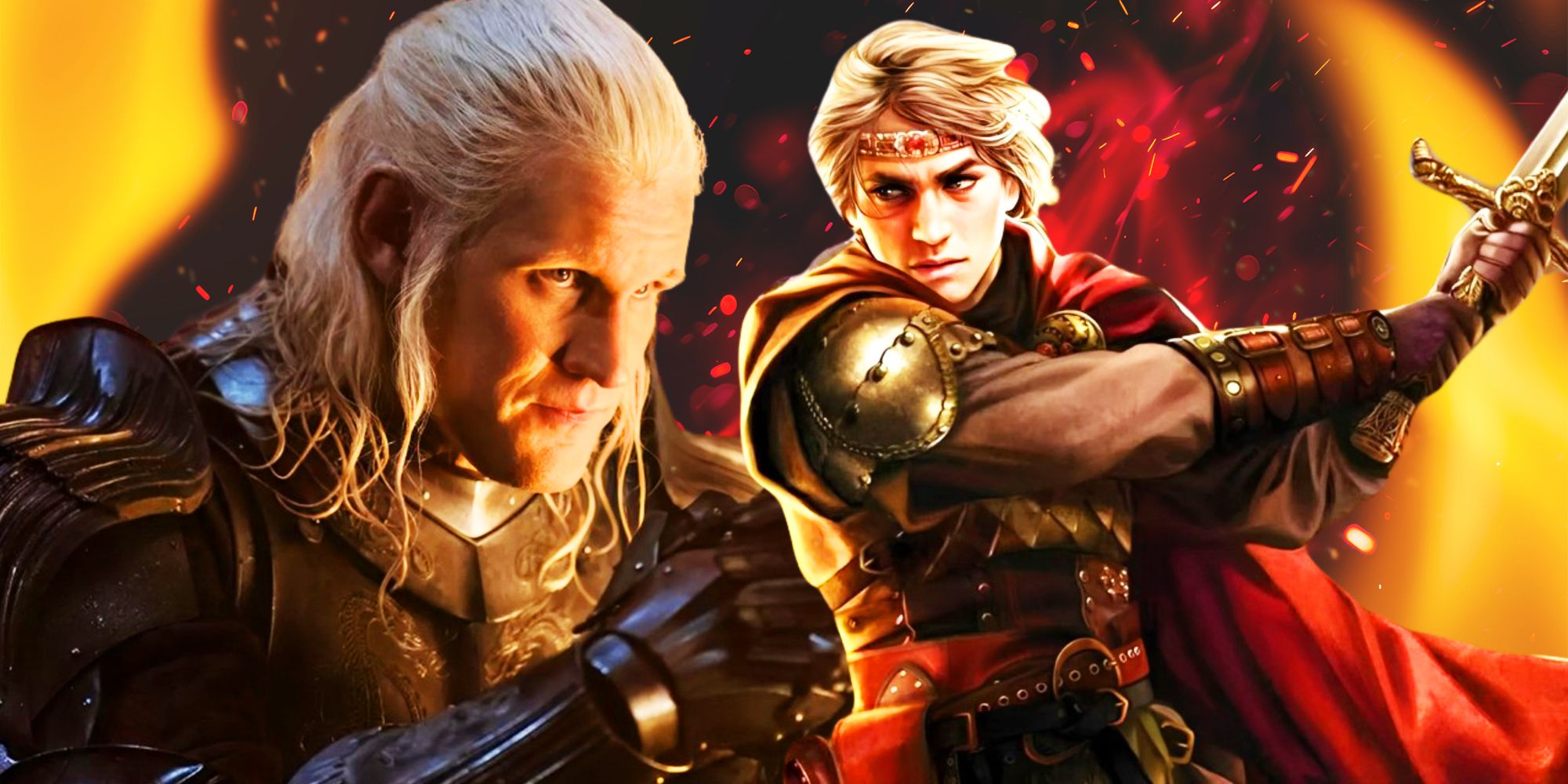
Related
10 Best Targaryen Characters Who Aren't In Game Of Thrones Or House Of The Dragon
Game of Thrones and House of the Dragon have barely scratched the surface of the amazing Targaryen characters in George R.R. Martin's books.
Again, Daenerys' narrative in Game of Thrones in A Song of Ice & Fire is about her establishing what type of ruler she'd like to be. She quickly discovers that when she does something as economically disrupting as freeing thousands of slaves, she finds herself antagonizing local oligarchs. Daenerys manages to defeat the slavers in the TV series, but it comes at a great cost, and they ultimately win back the region once she leaves.
2 Queen of the Andals and the First Men
The Andals & First Men Are Two Major Cultural Groups In Westeros
"Queen of the Andals and the First Men" is a common title granted to every monarch of Westeros, be it Robert Baratheon, Cersei, or Rhaenyra Targaryen. Rather than just saying "Queen of Westeros," the title incorporates the various lineages of the continent, referring to the two primary ethnic groups: the Andals and the First Men. Houses like Stark and Karstark can trace their roots back to the First Men, dating back thousands of years to the Age of Heroes and beyond.
In the books, the title is "Queen of the Andals, the Rhoynar and the First Men." The Rhoynar are commonly omitted from the TV show.
The Andals were a secondary ethnic group to sail to Westeros, bringing the Faith of the Seven to the continent. They initially spent centuries warring with the First Men before they became integrated and established houses like Arryn and Tyrell. Andal culture is arguably the most dominant in Westeros, as the Seven is the most common religion everywhere in the realm except for the North. Daenerys uses this title to affirm her domain over all peoples on the continent.
1 Protector of the Seven Kingdoms
A Combination Of Common Westerosi Monarch Titles
"Protector of the Seven Kingdoms" is similar to the previous title, as it's a combination of two other titles that usually refer to the monarch of Westeros; those being "Lord of the Seven Kingdoms" and "Protector of the Realm." It's likely that those were combined on Game of Thrones to assign a genderless title to Daenerys rather than using "Lady of the Seven Kingdoms."
Before Aegon the Conqueror united Westeros, the continent was divided into Seven Kingdoms. The North was its own kingdom ruled by Stark kings, the Westerlands were ruled by Lannister kings, and so on. 300 years later, during the events of Game of Thrones, the monarch of Westeros honors the roots of different regions by commonly referring to the landmass as so.
Sources: EventHorizon.com
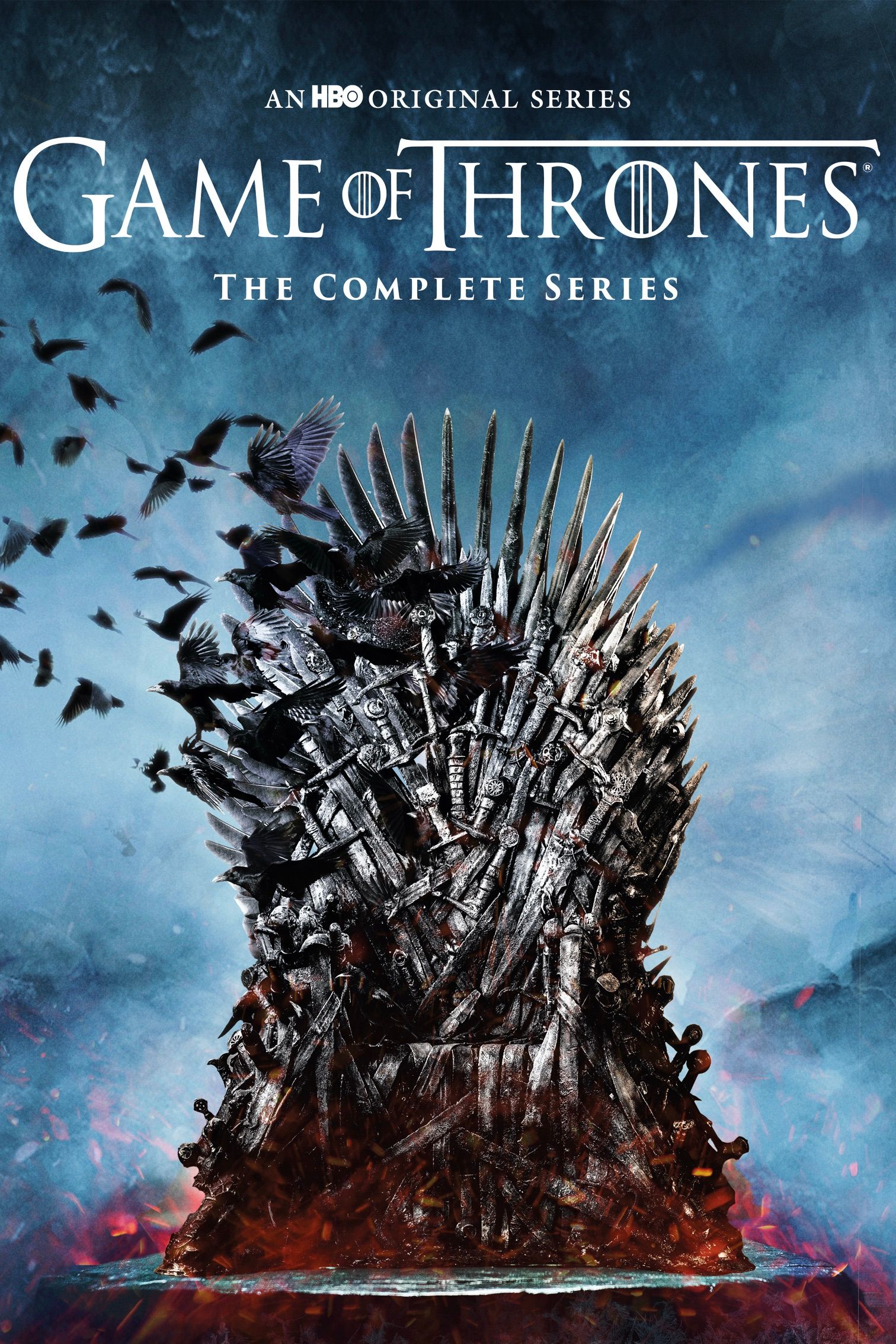
Based on George R.R. Martin's novels, this fantasy series follows the power struggles among noble families as they vie for control of the Iron Throne in the Seven Kingdoms of Westeros. The series is known for its complex characters, political intrigue, and unexpected plot twists.
Release Date April 17, 2011
Seasons 8



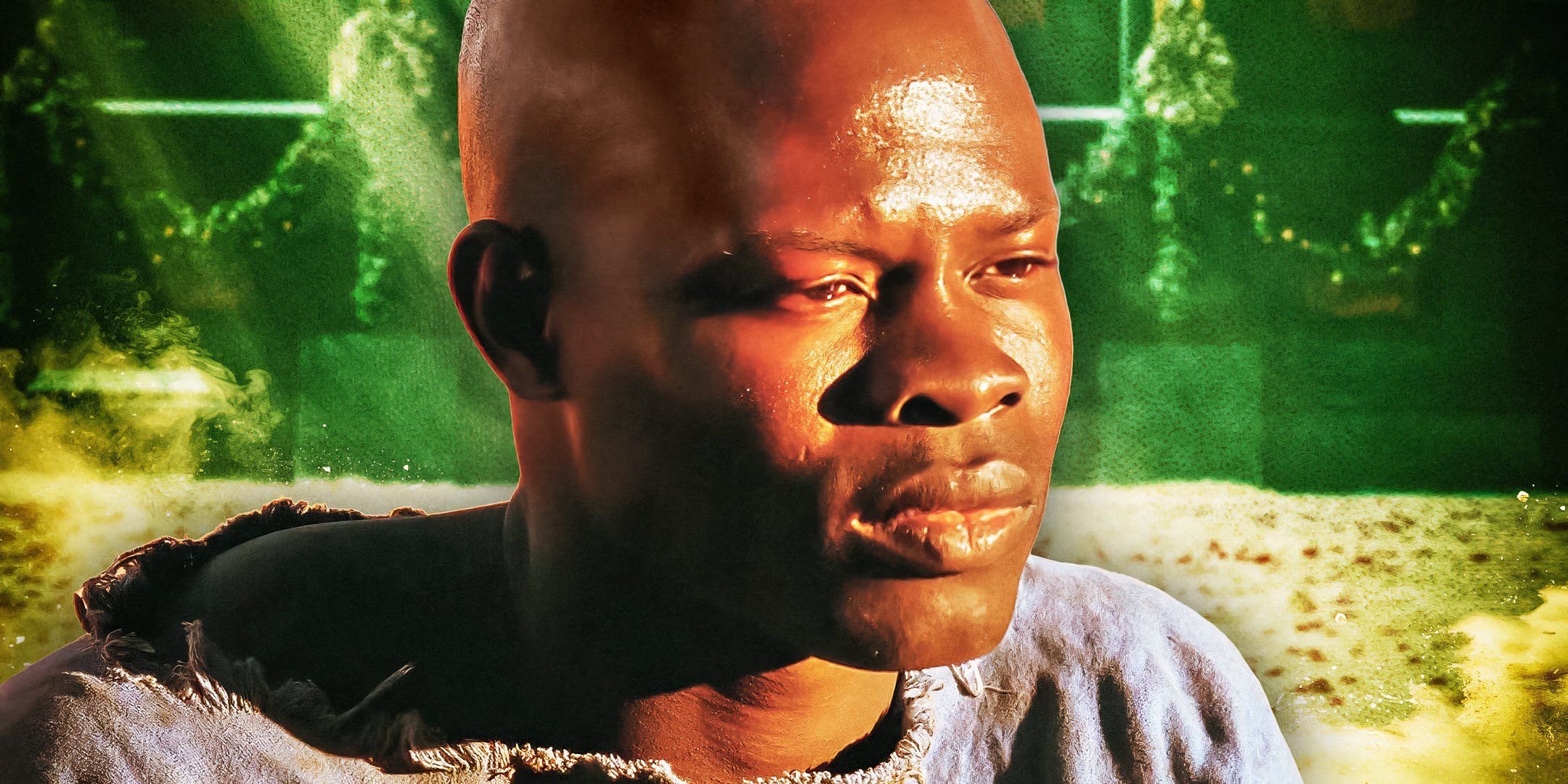





 English (US) ·
English (US) ·